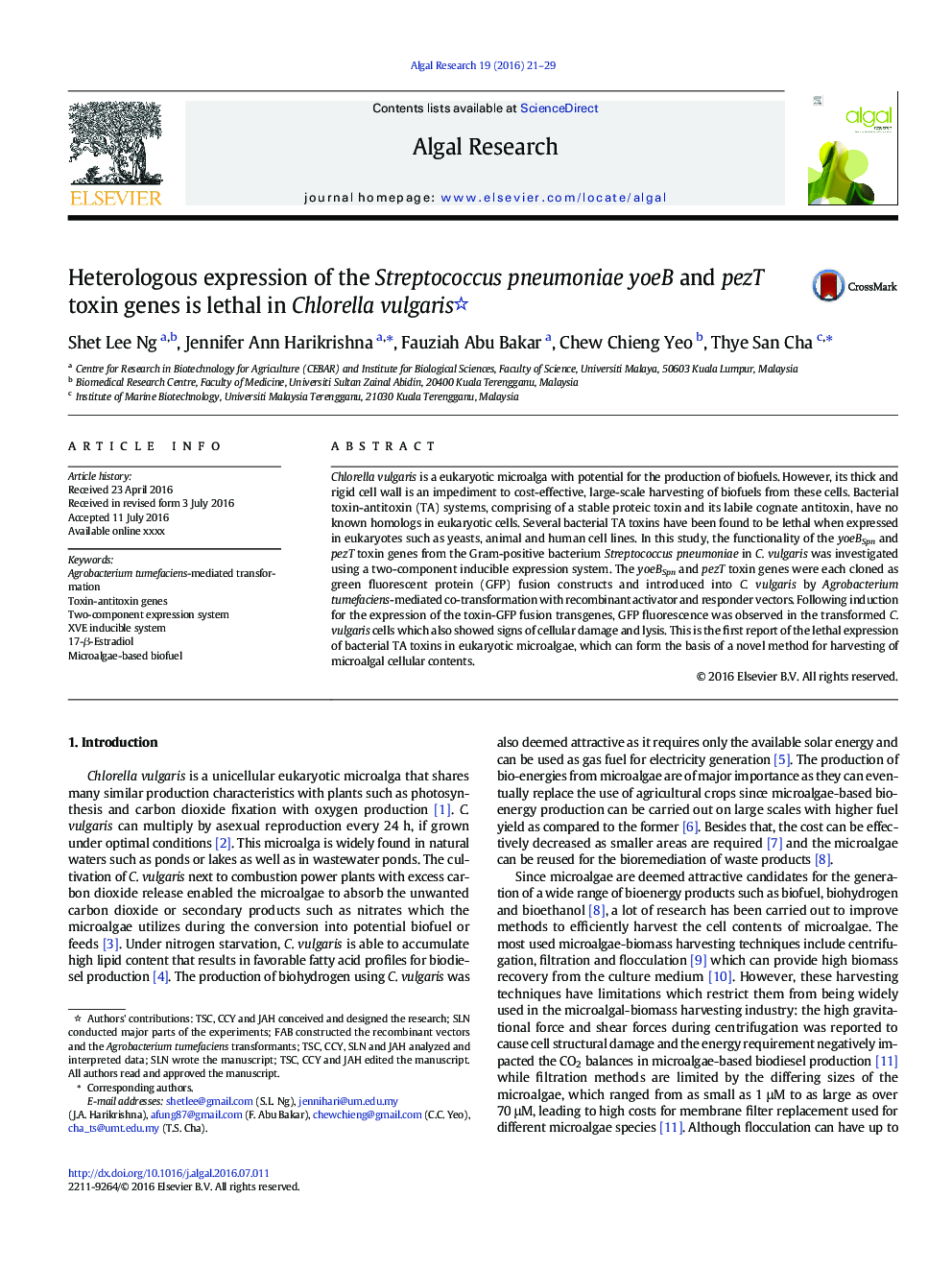| Article ID | Journal | Published Year | Pages | File Type |
|---|---|---|---|---|
| 8086454 | Algal Research | 2016 | 9 Pages |
Abstract
Chlorella vulgaris is a eukaryotic microalga with potential for the production of biofuels. However, its thick and rigid cell wall is an impediment to cost-effective, large-scale harvesting of biofuels from these cells. Bacterial toxin-antitoxin (TA) systems, comprising of a stable proteic toxin and its labile cognate antitoxin, have no known homologs in eukaryotic cells. Several bacterial TA toxins have been found to be lethal when expressed in eukaryotes such as yeasts, animal and human cell lines. In this study, the functionality of the yoeBSpn and pezT toxin genes from the Gram-positive bacterium Streptococcus pneumoniae in C. vulgaris was investigated using a two-component inducible expression system. The yoeBSpn and pezT toxin genes were each cloned as green fluorescent protein (GFP) fusion constructs and introduced into C. vulgaris by Agrobacterium tumefaciens-mediated co-transformation with recombinant activator and responder vectors. Following induction for the expression of the toxin-GFP fusion transgenes, GFP fluorescence was observed in the transformed C. vulgaris cells which also showed signs of cellular damage and lysis. This is the first report of the lethal expression of bacterial TA toxins in eukaryotic microalgae, which can form the basis of a novel method for harvesting of microalgal cellular contents.
Related Topics
Physical Sciences and Engineering
Energy
Renewable Energy, Sustainability and the Environment
Authors
Shet Lee Ng, Jennifer Ann Harikrishna, Fauziah Abu Bakar, Chew Chieng Yeo, Thye San Cha,
